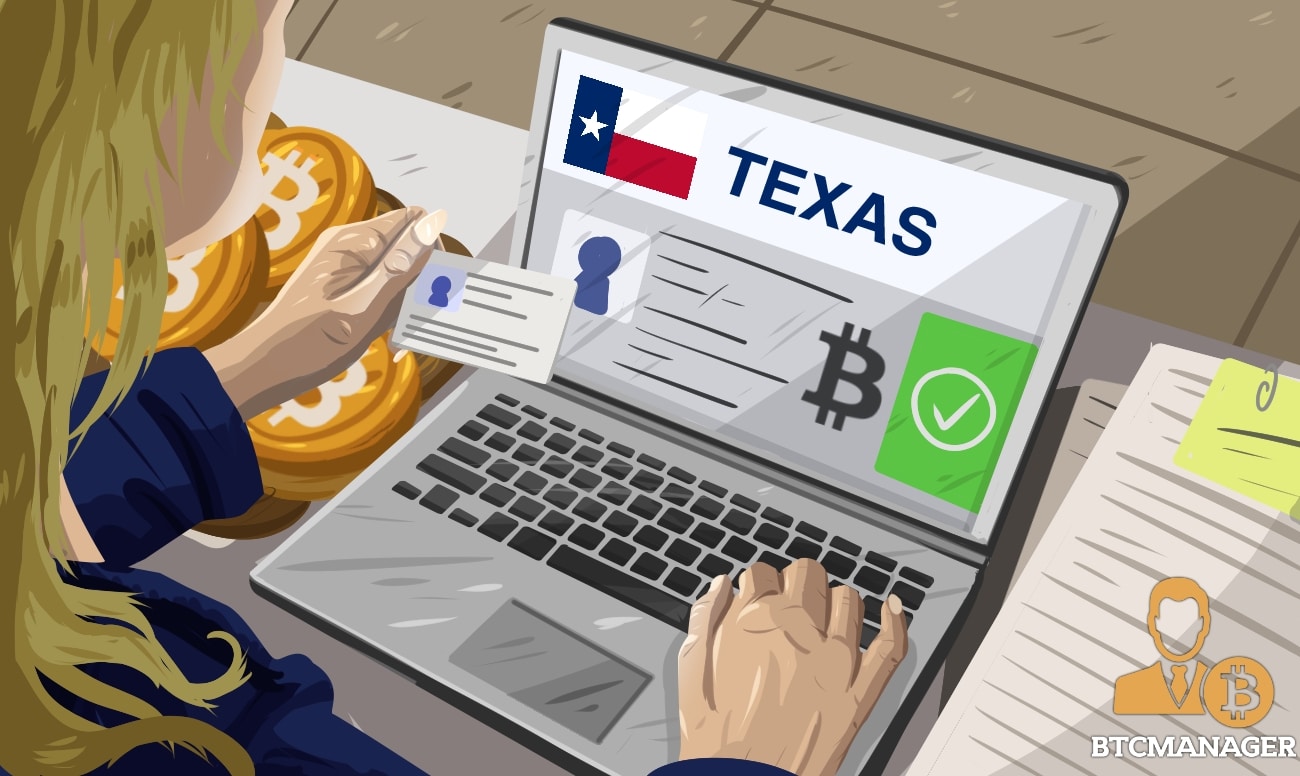Texas Representative Looks to Force Verify Cryptocurrency Users

A member of Texas House of Representatives Phil Stephenson has introduced a draft bill which if passed will require residents of Texas to give their identity before they can use cryptocurrencies like bitcoin.
Promote Use of Verified Identity Digital Currencies
The proposed legislation requires that users sending and receiving digital currencies must be known but those using “verified identity digital currencies” don’t have to submit their verification.
Should the Texas House Bill No. 4371 pass to become law, it would take effect on September 1, 2019, and could take the institutionalization of cryptocurrencies to an entirely new level. According to the bill, blockchain technology has been identified as a tool the enables users to create financial aliases.
Stephenson’s bill aims to prevent this by proposing that Texas educates its law enforcement agencies on cryptocurrencies and promote the use of verified identities. Section 662.02 of the bill explains that before an individual accepts cryptocurrency payments, such a person needs to verify the identity of the sender.
If HB 4371 sees the light of day, cryptocurrency transactions would become illegal where the sender and receiver are not known to each other. The bill wants state agencies such as securities boards, state banking departments, and other providers to create a way of telling between verified and unverified cryptocurrency users. The bill states:
“[Texans] may not use a digital currency that is not a verified identity digital currency — The Texas Department of Banking, Credit Union Commission, Texas Department of Public Safety, and State Securities Board shall collaborate to encourage the use of verified identity digital currencies.”
The Texan lawmaker who is also a Certified Public Accountant, believes his accounting orientation is the help the state needs in matters of financial institutions.
However, cryptocurrency enthusiasts are disturbed to hear about the introduction of a bill that’s attempting to ban the use of digital currencies anonymously. The co-founder and counsel for Athena blockchain Drew Hinkes wondered what existing cryptocurrencies would qualify as verified identity cryptocurrencies.
Congratulations #Texas, you're the first state to formally attack and attempt to ban anonymous use of #cryptocurrency in the US. https://t.co/KHaPgQiq5H
— Drew Hinkes (@propelforward) March 10, 2019
The main problem with the cryptocurrency regulation seems to be the fact that in their very nature, cryptocurrencies enable users to transfer the ownership to any individual in the world without any identification procedures.
Even if it is passed, the Texan authorities will meet many legal barriers since other countries haven’t regulated cryptocurrencies. Japan’s experience in May 2018, when the country’s Financial Services Authority (FSA) admitted it couldn’t crack the alleged crypto-enabled $269,647,500 money laundering case serves as a support for Stephenson’s bill.
At that time, the FSA said:
“It’s nearly impossible for Japan to handle the problem alone. Even if the trade is restricted to only domestic transfers or monitoring is enhanced, it’s still not enough to counter money laundering […] it would be best if all the group of 20 industrial and emerging nations and regions (G-20) would take the same steps toward prevention.”













